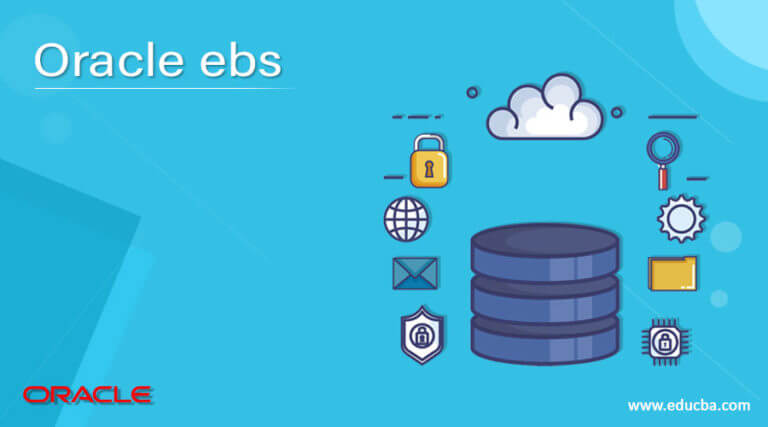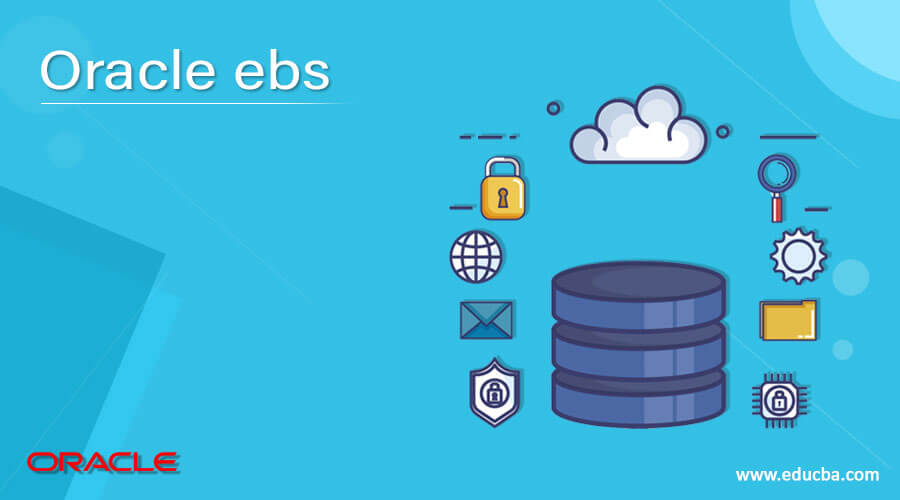Understanding Oracle EBS: An Overview
Oracle E-Business Suite (EBS) is a comprehensive, integrated suite of business applications that enables organizations to manage critical business functions, such as financial management, procurement, project management, and supply chain management. Oracle EBS courses empower learners to harness the full potential of this robust tool, providing them with the skills and knowledge necessary to streamline business processes, increase efficiency, and drive growth.
Gaining expertise in Oracle EBS offers numerous benefits, including enhanced productivity, improved decision-making capabilities, and increased competitiveness in the job market. Oracle EBS professionals can pursue various job roles, such as functional consultants, system administrators, project managers, and financial analysts, to name a few. By investing in Oracle EBS courses, professionals can advance their careers, boost their earning potential, and contribute significantly to their organizations’ success.
Selecting the Right Oracle EBS Course
Choosing the ideal Oracle EBS course is crucial for maximizing your learning experience and achieving your career goals. Consider the following factors when selecting a course:
- Current skill level: Assess your current proficiency in Oracle EBS and identify areas where you need improvement. Some courses cater to beginners, while others target intermediate or advanced learners.
- Career goals: Determine your short- and long-term career objectives. If you aspire to become a functional consultant, for example, you may want to focus on courses that cover specific Oracle EBS modules in-depth.
- Learning preferences: Consider whether you prefer self-paced learning, instructor-led training, or a blended approach. Some learners thrive in structured, classroom-style environments, while others prefer the flexibility of online courses.
- Instructor credentials: Research the background and experience of the course instructors. Look for professionals with a strong track record in Oracle EBS implementation, consulting, or training.
- Course content: Ensure the course covers the topics and skills you wish to acquire. A well-designed curriculum should include both theoretical knowledge and practical exercises to help you apply your new skills.
- Hands-on experience: Seek courses that offer opportunities for hands-on experience, such as simulations, labs, or real-world projects. Practical experience is essential for reinforcing your learning and preparing for real-world scenarios.
- Cost: Compare the pricing of different courses and consider your budget. While it’s essential to invest in high-quality training, you should also aim to get the best value for your money.
Top Oracle EBS Courses for Beginners
Starting your journey with Oracle EBS can be exciting and overwhelming. Here are some beginner-friendly courses to help you build a strong foundation:
1. Oracle E-Business Suite Essentials (Oracle University)
This course offers a comprehensive introduction to Oracle EBS, covering its architecture, functionality, and applications. Participants learn about various EBS modules, such as Financials, Procurement, and Project Management. The course includes hands-on labs, instructor-led training, and self-paced learning options.
2. Oracle EBS 12.2: Introduction (Pluralsight)
Pluralsight’s beginner-friendly course covers Oracle EBS 12.2, the latest version of the suite. The curriculum includes an overview of EBS components, installation, and configuration. Participants also learn about EBS security, user management, and system maintenance.
3. Oracle EBS 12.1: Functional Setup Manager (FSM) (LinkedIn Learning)
LinkedIn Learning’s course focuses on the Functional Setup Manager (FSM) tool, which simplifies the setup and configuration of Oracle EBS. Participants learn how to use FSM to manage various EBS modules, such as Financials, Procurement, and Human Capital Management (HCM).
4. Oracle EBS Financials 12.2: Introduction (Udemy)
This Udemy course is perfect for those interested in Oracle EBS Financials. Participants learn about the General Ledger, Accounts Payable, Accounts Receivable, and Cash Management modules. The course includes video lectures, quizzes, and hands-on exercises.
When selecting a beginner-friendly Oracle EBS course, consider factors such as your budget, learning preferences, and desired skillset. Most courses offer self-paced or instructor-led options, allowing you to learn at your own pace. Additionally, look for courses that provide hands-on experience, as practical exercises help reinforce your learning and prepare you for real-world scenarios.
Advanced Oracle EBS Courses for Experienced Professionals
If you’re an experienced professional looking to deepen your Oracle EBS knowledge, consider these intermediate and advanced courses:
1. Oracle EBS R12: Advanced Financials (Oracle University)
This course delves into advanced topics related to Oracle EBS Financials, such as complex accounting structures, allocations, and intercompany transactions. Participants learn how to optimize financial processes and ensure compliance with accounting standards.
2. Oracle EBS R12: Supply Chain Management (SCM) (Oracle University)
Oracle EBS SCM is an advanced course that covers supply chain management, including order management, inventory management, and logistics. Participants learn how to streamline supply chain processes, reduce costs, and improve customer satisfaction.
3. Oracle EBS R12: Manufacturing (Oracle University)
This advanced course focuses on Oracle EBS Manufacturing, covering topics such as product configuration, work order management, and shop floor control. Participants learn how to optimize manufacturing processes, reduce lead times, and improve product quality.
4. Oracle EBS R12: Projects (Oracle University)
Oracle EBS Projects is an advanced course that covers project management, including project planning, budgeting, and cost control. Participants learn how to manage projects effectively, improve resource utilization, and maximize profitability.
When selecting advanced Oracle EBS courses, consider factors such as your career goals, current skill level, and desired areas of expertise. Look for courses that offer hands-on experience, real-world case studies, and opportunities to network with industry professionals. Additionally, ensure that the course instructors have a strong background in Oracle EBS implementation, consulting, or training.
Oracle EBS Courses with Real-World Applications
Real-world applications and case studies are essential components of Oracle EBS courses, as they help learners better understand the tool and its practical uses. Here are some courses that emphasize hands-on experience and real-world scenarios:
1. Oracle EBS R12: Hands-On Lab Series (Oracle University)
This lab series offers a hands-on approach to learning Oracle EBS, allowing participants to practice various tasks and processes in a simulated environment. The curriculum covers topics such as Financials, Procurement, and Project Management.
2. Oracle EBS R12: Customization and Configuration (Oracle University)
This course focuses on customizing and configuring Oracle EBS to meet specific business requirements. Participants learn how to tailor EBS to their organization’s needs, ensuring optimal performance and functionality.
3. Oracle EBS R12: Implementation Workshops (Oracle University)
Oracle EBS Implementation Workshops are designed for professionals involved in EBS implementation projects. These workshops cover best practices, project management, and change management, providing valuable insights into real-world EBS implementations.
4. Oracle EBS R12: Real-World Projects (Udacity)
Udacity’s Oracle EBS course includes real-world projects, enabling participants to apply their knowledge in practical scenarios. Students work on projects related to Financials, Supply Chain Management, and Manufacturing, gaining hands-on experience with EBS applications.
When selecting Oracle EBS courses with real-world applications, look for courses that offer hands-on labs, simulations, and practical exercises. These activities help reinforce your learning and prepare you for real-world challenges. Additionally, consider courses that provide access to expert instructors and industry professionals, who can offer valuable insights and guidance based on their experience.
Complementary Courses to Enhance Your Oracle EBS Expertise
Expanding your skillset beyond Oracle EBS can increase your value in the job market and enhance your overall proficiency. Here are some complementary courses to consider:
1. Oracle Database Administration (Oracle University)
Gaining expertise in Oracle Database Administration can help you better understand EBS’s underlying database structure and improve your troubleshooting and optimization skills. Oracle University offers a range of courses covering database installation, configuration, and management.
2. Project Management Professional (PMP) Certification (Project Management Institute)
Project Management skills are essential for implementing and maintaining Oracle EBS successfully. Obtaining a PMP certification can help you better manage EBS projects, ensuring timely delivery and optimal resource allocation.
3. Software Development (Coursera, Udemy, or edX)
Understanding software development principles and programming languages can help you customize and integrate Oracle EBS with other systems. Consider enrolling in courses covering languages such as Java, Python, or SQL.
4. Cloud Computing and Infrastructure (AWS, Microsoft Azure, or Google Cloud)
Oracle EBS is increasingly moving to the cloud, making cloud computing and infrastructure skills valuable additions to your expertise. Consider taking courses on cloud platforms like AWS, Microsoft Azure, or Google Cloud to stay current with the latest trends and technologies.
When selecting complementary courses, consider your career goals, current skillset, and the demands of your job. Complementary courses can help you broaden your skillset, increase your value in the job market, and ensure you stay up-to-date with the latest technologies and best practices.
Maximizing Your Learning Experience: Tips for Oracle EBS Course Success
To get the most out of your Oracle EBS course, follow these tips and strategies for success:
1. Set clear goals and objectives
Define your learning objectives and the skills you want to acquire before enrolling in a course. This will help you choose the right course and stay focused throughout your learning journey.
2. Manage your time effectively
Create a study schedule and allocate sufficient time for coursework, assignments, and hands-on exercises. Effective time management will help you stay on track and make the most of your learning experience.
3. Actively participate in discussions
Engage in course discussions, ask questions, and share your insights with peers and instructors. Active participation will help you deepen your understanding of the material and build valuable connections with industry professionals.
4. Complete hands-on exercises and projects
Hands-on exercises and projects are essential for reinforcing your learning and gaining practical experience with Oracle EBS. Make sure to complete all assigned exercises and projects to maximize your proficiency.
5. Network with instructors and peers
Build relationships with instructors and peers, as they can provide valuable insights, guidance, and support throughout your learning journey. Networking can also help you uncover job opportunities and advance your career.
6. Stay updated with the latest Oracle EBS features and best practices
Oracle regularly updates EBS with new features and best practices. Stay current with these updates by following Oracle’s official blogs, forums, and communities.
By following these tips and strategies, you can maximize your learning experience, gain proficiency in Oracle EBS, and enhance your value in the job market.
Assessing the Quality of Oracle EBS Courses
When selecting an Oracle EBS course, it’s crucial to evaluate its quality to ensure a valuable learning experience. Here are some factors to consider:
1. Accreditation
Check if the course is accredited by Oracle University or other reputable organizations. Accreditation ensures that the course meets industry standards and provides a high-quality learning experience.
2. Student reviews
Read student reviews to gauge the course’s effectiveness and the overall learning experience. Positive reviews from satisfied students are a good indicator of a high-quality course.
3. Instructor credentials
Research the instructor’s credentials and experience in Oracle EBS. Instructors with real-world experience and a strong background in Oracle EBS can provide valuable insights and guidance throughout the course.
4. Course content
Ensure that the course covers the latest Oracle EBS features and best practices. High-quality courses should provide comprehensive and up-to-date content, including hands-on exercises and real-world case studies.
5. Hands-on experience
Look for courses that offer hands-on experience with Oracle EBS. Practical exercises and projects help reinforce your learning and provide valuable hands-on experience with the tool.
6. Staying updated
Choose a course that stays current with the latest Oracle EBS updates and features. Instructors should regularly update the course content to ensure that learners receive the most relevant and up-to-date information.
By considering these factors, you can assess the quality of Oracle EBS courses and make an informed decision about which course is right for you.






